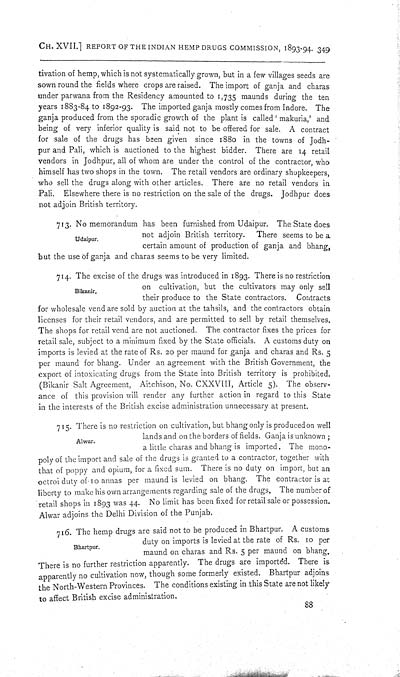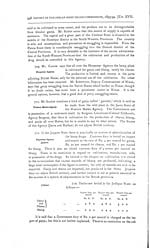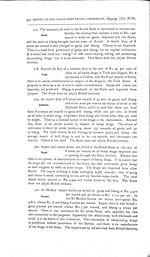Medicine - Drugs > Report of the Indian Hemp Drugs Commission, 1894-1895 > Volume I
(384) Page 349
Download files
Individual page:
Thumbnail gallery: Grid view | List view

CH. XVII.] REPORT OF THE INDIAN HEMP DRUGS COMMISSION, 1893-94. 349
tivation of hemp, which
is not systematically grown, but in a few villages seeds are
sown round the fields where crops are raised. The import of ganja
and charas.
under parwana from the Residency amounted to 1,735 maunds during
the ten
years 1883-84 to 1892-93. The imported ganja mostly comes from
Indore. The
ganja produced from the sporadic growth of the plant is called
'makuria,' and
being of very inferior quality is said not to be offered for sale.
A contract
for sale of the drugs has been given since 1880 in the towns of
Jodh-
pur and Pali, which is auctioned to the highest bidder. There are
14 retail
vendors in Jodhpur, all of whom are under the control of the
contractor, who
himself has two shops in the town. The retail vendors are ordinary
shopkeepers,
who sell the drugs along with other articles. There are no retail
vendors in
Pali. Elsewhere there is no restriction on the sale of the drugs.
Jodhpur does
not adjoin British territory.
Udaipur.
713. No memorandum has
been furnished from Udaipur. The State does
not adjoin British
territory. There seems to be a
certain amount of production of ganja and bhang,
but the use of ganja and charas seems to be very
limited.
Bikanir.
714. The excise of the
drugs was introduced in 1893. There is no restriction
on cultivation, but the
cultivators may only sell
their produce to the State contractors. Contracts
for wholesale vend are sold by auction at the tahsils, and the
contractors obtain
licenses for their retail vendors, and are permitted to sell by
retail themselves.
The shops for retail vend are not auctioned. The contractor fixes
the prices for
retail sale, subject to a minimum fixed by the State officials. A
customs duty on
imports is levied at the rate of Rs. 20 per maund for ganja and
charas and Rs. 5
per maund for bhang. Under an agreement with the British
Government, the
export of intoxicating drugs from the State into British territory
is prohibited.
(Bikanir Salt Agreement, Aitchison, No. CXXVIII, Article 5). The
observ-
ance of this provision will render any further action in regard to
this State
in the interests of the British excise administration unnecessary
at present.
Alwar.
715. There is no
restriction on cultivation, but bhang only is produced on
well
lands and on the borders of
fields. Ganja is unknown;
a little charas and bhang is imported. The mono-
poly of the import and sale of the drugs is granted to a
contractor, together with
that of poppy and opium, for a fixed sum. There is no duty on
import, but an
octroi duty of 10 annas per maund is levied on bhang. The
contractor is at
liberty to make his own arrangements regarding sale of the drugs.
The number of
retail shops in 1893 was 44. No limit has been fixed for retail
sale or possession.
Alwar adjoins the Delhi Division of the Punjab.
Bhartpur.
716. The hemp drugs are
said not to be produced in Bhartpur. A customs
duty on imports is levied at
the rate of Rs. 10 per
maund on charas and Rs. 5 per maund on bhang.
There is no further restriction apparently. The drugs are imported.
There is
apparently no cultivation now, though some formerly existed.
Bhartpur adjoins
the North-Western Provinces. The conditions existing in this State
are not likely
to affect British excise
administration.
88
Set display mode to: Large image | Zoom image | Transcription
Images and transcriptions on this page, including medium image downloads, may be used under the Creative Commons Attribution 4.0 International Licence unless otherwise stated. ![]()
| India Papers > Medicine - Drugs > Report of the Indian Hemp Drugs Commission, 1894-1895 > Volume I > (384) Page 349 |
|---|
| Permanent URL | https://digital.nls.uk/74574834 |
|---|---|
| Description | Chapter XVII, cont. |
| Description | [Volume 1]: Report. |
|---|---|
| Attribution and copyright: |
|




